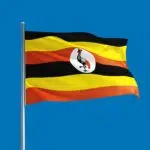National No Apologies Period Day is observed every year on June 9. For far too long, people who menstruate have been shamed and made to feel guilty simply for having periods. We live in a culture that teaches us from a young age that periods are something that should be hidden and not discussed in public, which is an insane concept considering that half of the world’s population has periods!
This important day seeks to dismantle the culture that has made menstruators ashamed of their own bodies. Periods are healthy, important, and natural. It’s time to do away with these old patriarchal notions and stop all the apologies. Period.
History of National No Apologies Period Day
We are now entering an age where body positivity is encouraged, with people becoming more and more open-minded about normal, healthy bodily functions like periods. Most girls will start their periods between the ages of 10 and 16 or two years after the first signs of puberty. They will continue till the ages of 40 to 50. To help the world move on from this period apology mindset, the National No Apologies Period Day was established in June 2021 by Midol, which makes period pain relieving medicine.
According to Midol, 62% of menstruators below 40 years of age have at some point in their lives apologized for their periods or period symptoms. For ages now, people assigned females at birth have been trained to apologize for everything, even things they cannot help and that are up to mother nature. From missing class to lack of intimacy or just overall wanting to disappear, women are always saying sorry for their own bodies and the uncontrollable period symptoms that come with it.
Periods are a natural phenomenon but many cultures throughout history have failed to, or have not even attempted to understand them. In fact, people have considered menstrual blood to be a curse throughout history. In Roman times, people even believed that it had the power to destroy crops and make wine sour.
Between the fifth and the 15th centuries, women used rags as makeshift pads, leading to the term “on the rag” becoming popular for menstruation. During medieval times, people were of the view that period cramps were a reminder of Eve’s original sin and something that women should be made to suffer through. No pain relief, in the form of natural and herbal remedies, was made available to the women back then on purpose — almost to punish them.
National No Apologies Period Day timeline
Ancient Egyptians make tampons out of softened papyrus, while Greek women wrap lint around a small piece of wood to use as tampons.
The term “periods” for menstruation comes into use.
WWI nurses discover that soldier bandages, made of cellucotton, are highly absorbent, leading to the launch of sanitary napkins.
Earl Haas invents and patents the menstrual tampon we most commonly use today.
National No Apologies Period Day FAQs
How long is a period cycle?
Menstrual flow may occur every 21 to 35 days. It can last anywhere between two and seven days but for the first few years after menstruation begins, it is common to have long cycles.
What are the symptoms of periods?
Apart from the obvious bleeding, some symptoms include feeling bloated, tender breasts, mood swings, irritability, a drop in libido, spotty skin, and greasy hair. These are all common and normal symptoms of premenstrual syndrome (P.M.S.).
Can you get pregnant on your period?
A woman’s ovulation cycles can vary, so it’s technically possible for you to become pregnant while you’re on your period. While pregnancy is less likely in the earlier days of the period, the chances increase in the latter days.
How to Observe National No Apologies Period Day
Explore different options
Look up the different types of things available in the market for menstruation. While sanitary pads and tampons are the common ones, menstrual cups are quickly becoming popular for their use and environment-friendliness.
Learn more about your body
Research and educate yourself on your own body and your periods. Track your cycle so you can be better prepared and observe the changes that your body goes through while you’re on your periods.
Take on the tampon tax
Raise awareness about what’s popularly called the “tampon tax” and what an unnecessary practice it is. Period products are subject to a state sales tax in most U.S. states, despite efforts to ban it country-wide. Write to your representative to try and repeal this tax.
5 Facts About Periods That Will Blow Your Mind
10 years of periods
Menstruators spend around 10 years of their lives on their periods.
We’re having our periods sooner
Thanks to improved nutrition, periods now start at around the age of 12, compared to 17 in the 1800s.
Three tablespoons of blood lost
You can lose anywhere between one tablespoon to a small cup worth of blood on your period.
Periods affect your voice and smell
The many hormonal changes in the body affect the vocal cords and even the person’s scent, although this is mostly unnoticeable.
Periods are worse in winters
Cold weather can make your period heavier, longer, and more painful than usual.
Why National No Apologies Period Day is Important
It removes the period taboo
A lot of us were told to hide our pads and tampons as kids so no one would get to know we were on our periods. Kids are also told that periods are dirty and many cultures forbid women from entering the kitchen and performing religious activities while they’re menstruating. National No Apologies Period Day helps get rid of this stigma.
It allows us to share information
Because of the hush-hush culture, we grew up in, many of us are hesitant to discuss periods and any problems we might have related to it with friends, family, and even doctors. The day reminds us that periods are a normal bodily function and we should be actively seeking and sharing information about our bodies with other menstruators.
Pads and tampons are a necessity
While pads, tampons, and menstrual cups are readily available to most of us, many people around the world don’t have access to these and consider them luxuries. Lack of access to these often leads to health problems and in some cases, even death in underdeveloped regions of the world.
National No Apologies Period Day dates
| Year | Date | Day |
|---|---|---|
| 2026 | June 9 | Tuesday |
| 2027 | June 9 | Wednesday |
| 2028 | June 9 | Friday |
| 2029 | June 9 | Saturday |
| 2030 | June 9 | Sunday |














